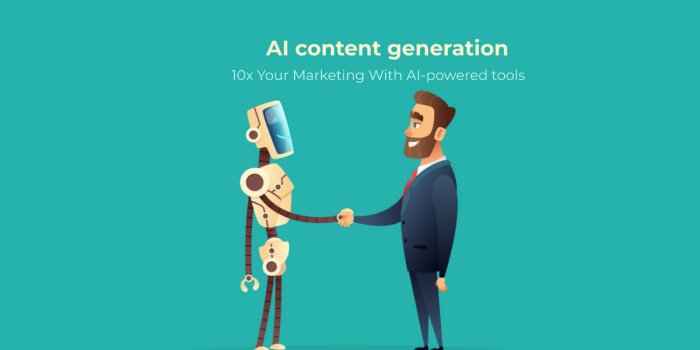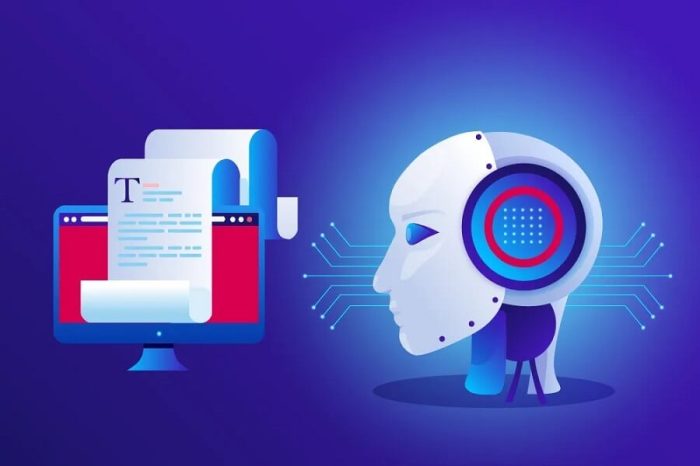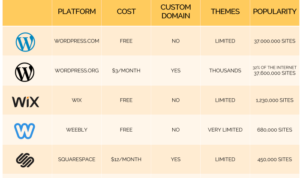Using AI for Content Creation opens up a world of possibilities in revolutionizing how we approach creative processes, offering innovative solutions and enhancing efficiency in content generation. Dive into the realm of AI-driven content creation and discover the future of creativity.
What is AI and why is it relevant for content creation?: Using AI For Content Creation
Artificial Intelligence (AI) refers to the simulation of human intelligence processes by machines, particularly computer systems. In the realm of content creation, AI plays a crucial role in automating various tasks that would otherwise be time-consuming and labor-intensive for humans. By utilizing AI tools, content creators can streamline their workflow, enhance efficiency, and unlock new levels of creativity.
Streamlining Content Generation
AI algorithms can analyze vast amounts of data in a fraction of the time it would take a human, allowing content creators to gather insights, trends, and relevant information quickly. This capability enables writers, marketers, and other content creators to produce high-quality content at a faster pace, meeting the demands of today’s fast-paced digital landscape.
Enhancing Creativity and Efficiency
AI tools such as natural language processing (NLP) and machine learning algorithms can help content creators generate new ideas, optimize content for , and personalize content for specific target audiences. By leveraging these AI capabilities, content creators can focus more on the creative aspects of their work, such as storytelling and engaging with their audience, while leaving repetitive and data-driven tasks to AI-powered tools.
Applications of AI in content creation.

AI is revolutionizing content creation across various platforms, making the process more efficient and effective. Let’s delve into some key applications of AI in content creation.
AI in Generating Written Content
AI-powered tools like GPT-3 can generate written content autonomously by analyzing vast amounts of data and mimicking human writing styles. Companies use AI to create blog posts, articles, product descriptions, and even social media posts. These tools can produce high-quality content at scale, saving time and resources for content creators.
AI in Creating Visual Content
AI is also used to create visual content such as images and videos. For instance, AI algorithms can generate realistic images based on textual descriptions or even enhance existing images by removing backgrounds or retouching. In the realm of video creation, AI-powered tools can edit videos, add special effects, and even create personalized video content for marketing purposes.
AI in Content Curation and Optimization
AI-powered tools play a crucial role in content curation and optimization. These tools can analyze user data, preferences, and behaviors to recommend personalized content to audiences. AI algorithms can optimize content for search engines by identifying relevant s, improving readability, and enhancing overall performance. Additionally, AI can help content creators track performance metrics and make data-driven decisions to enhance content strategy.
Benefits of using AI for content creation.
AI offers several benefits when it comes to content creation. It can significantly improve content quality and relevance, personalize content for target audiences, and analyze data to optimize content performance.
Improved Content Quality and Relevance
AI tools can help content creators produce high-quality and relevant content by providing insights on trending topics, s, and audience preferences. By analyzing data from various sources, AI can suggest relevant content ideas, optimize headlines and meta descriptions, and ensure that the content is tailored to meet the needs of the target audience.
Personalization for Target Audiences, Using AI for Content Creation
AI can help in creating personalized content experiences for target audiences by analyzing user behavior, preferences, and demographics. By utilizing machine learning algorithms, AI tools can recommend personalized content recommendations, tailor messaging based on user interactions, and deliver content that resonates with individual users.
Data Analysis for Content Optimization
AI tools can analyze large volumes of data to uncover valuable insights that can be used to optimize content performance. By tracking key performance indicators (KPIs), such as engagement metrics, conversion rates, and click-through rates, AI can provide recommendations for improving content strategy, enhancing user experience, and maximizing ROI.
Challenges and considerations when using AI for content creation.

When it comes to using AI for content creation, there are several challenges and considerations that need to be addressed to ensure the quality and authenticity of the content generated.
Potential limitations of AI in generating original and engaging content.
AI has its limitations when it comes to creating content that is truly original and engaging. While AI can generate text based on patterns and data, it may struggle to produce content that is truly creative or emotionally resonant. Additionally, AI may lack the ability to understand context, leading to inaccuracies or inappropriate content generation.
Ethical considerations related to AI-generated content.
Ethical considerations are crucial when using AI for content creation. It is important to consider issues such as plagiarism, copyright infringement, and the potential misuse of AI-generated content. Ensuring that AI-generated content is ethical and complies with legal standards is essential to maintain credibility and integrity.
Tips for overcoming challenges when implementing AI in content creation processes.
To overcome challenges when using AI for content creation, it is important to:
- Provide clear guidelines and parameters for AI to follow.
- Regularly review and edit AI-generated content to ensure accuracy and quality.
- Train AI models with diverse and high-quality data to improve content generation capabilities.
- Monitor AI-generated content for biases, inaccuracies, or inappropriate material.
- Seek feedback from human editors and professionals to enhance the quality of AI-generated content.
